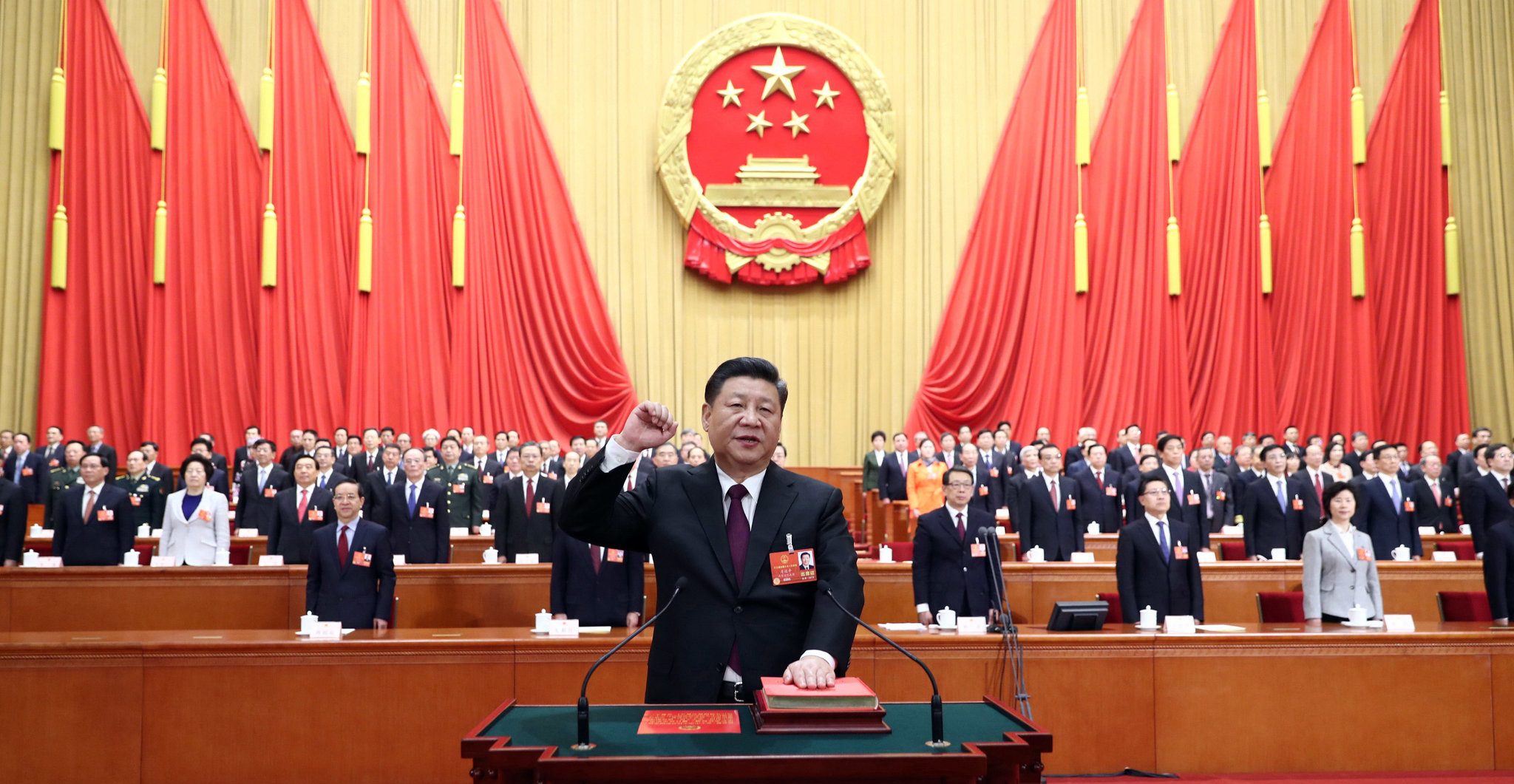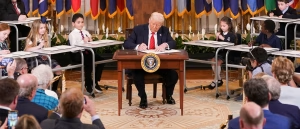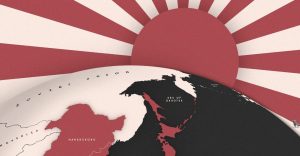On 17th November 2014, Chinese President Xi Jinping made a historic speech to the joint Houses of Parliament, praising Australia-China relations as reaching “a new and higher starting point”. Since then, China’s bilateral relations with the West have declined by almost every possible metric, fuelled by Xi’s relentless pursuit of establishing his nation as a military, economic and political superpower that seeks to challenge the world order created by the West. An analysis of the rise of Chinese aggression on Australia’s foreign policy incorporates the history of Australia-China relations, the ideological motives behind China’s increasing hostility and finally, its direct implications on Australia.
A History of Australia-China Relations
Modern Australia-China relations can be traced back to the Cold War, when China and the Soviet Union experienced irreconcilable divergences in their fundamental national interests and their interpretations of Marxism-Leninism, which led to the Sino-Soviet Split. This inherent ideological feud between China and the Soviet Union “shattered the idea of monolithic international communism”, the western belief that communism was a ubiquitous ideological system where all communist nations shared uniform national interests and foreign policy. Additionally, the Sino-Soviet Split contributed to dispelling the pervasive view of China being a communist proxy and an ideological extension of the Soviet Union. This allowed Australia to move away from Prime Minister Robert Menzies’ 1950s and 1960s exploitation of “Cold War fears and the threat of communism”, paving the way for diplomatic relations between the two nations.
The decline in anti-Chinese sentiment was largely responsible for Gough Whitlam’s historic decision to visit China in July 1971 as Leader of the Opposition, which “opened the way to public support for engagement with Asia”. On 22nd December 1972, within just three weeks of assuming the office of Prime Minister, Whitlam announced an agreement to recognise “the Government of the People’s Republic of China as the sole legal government of China”, a critical turning point in Australian foreign policy which established the foundations for official bilateral relations between the two nations.
Gough Whitlam and Deng Xiaoping
Whitlam was acutely aware of China’s industrial potential and was willing to forgo Australia’s diplomatic ties with Taiwan in the pursuit of economic growth. This decision represented a pivotal transition in Australian politics, sacrificing its anti-communist imperatives of the Cold War and adopting a foreign policy that he and the Australian Labor Party believed was in the best interests of the Australian people. Whitlam’s resolution to become one of the first western leaders to recognise the People’s Republic of China “spoke for a greater sense of maturity and independence in Australia’s foreign policy”, representing a fundamental shift away from its dependence on the United States.
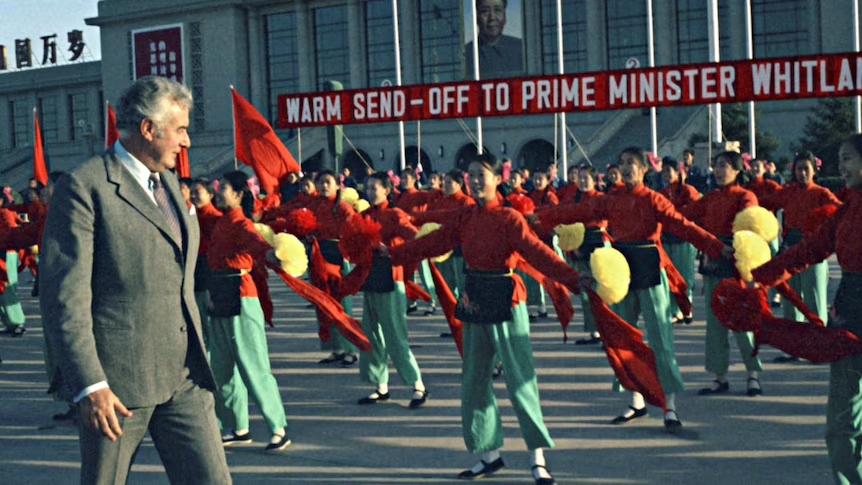
In December 1978, Chairman Deng Xiaoping ascended to power, ushering in a new era of globalisation and Chinese cooperation with the West. Widely regarded as the ‘architect of modern China’, he transitioned the socialist system into a “market-oriented economy” that was more comparable to the likes of capitalism. Deng’s economic policies brought prosperity to his nation and transformed it into a significant industrial centre. China’s political and economic ties to Australia were at an all-time high following its accession to the World Trade Organisation in December 2001, overtaking Japan to become Australia’s largest trading partner by late 2007. Just as it seemed that relations could not get any better, the global political landscape was radically transformed in March 2013 with the rise of Xi Jinping.
The Rise of Xi Jinping
Xi Jinping’s presidency marked the most radical shift in Chinese foreign policy since Deng Xiaoping’s economic reforms of the 1980s, sparking Chinese aggression and a decline in bilateral relations with the West. Xi’s political narrative was driven by a desire to create the ‘Chinese dream’, which was characterised by the precedence of Chinese national interest and a “great rejuvenation of the Chinese nation”. His policies were centred around Sino-centrism and an obsession with transforming China into an economic, political and military superpower to challenge the world order created by the West after the Cold War. The “correction of past humiliation at the hands of the West” dominated Xi’s vision, and his ‘reelection’ for an unprecedented third term at the 20th Communist Party Congress in October 2022 solidified his position as the most ambitious, powerful Chinese leader since Mao Zedong, the founder of the People’s Republic of China.
Xi’s attempt to create a Sino-centric global order has culminated in highly aggressive domestic and foreign policy. He has significantly amplified internet censorship, prosecuted over 2.3 million government officials in his anti-corruption campaign and substantially increased military incursions into Taiwanese airspace. Most notable, however, has been the astronomical rise of Chinese military spending since Xi took power. China’s military budget for 2024 was 1.67 trillion yuan (AU$349 billion), an increase of 7.2% from the previous year and 60% from 2012, when it was an estimated 1.05 trillion yuan (AU$219 billion). The continual expansion of the People’s Liberation Army has served as a means for China to project its power on the international stage, reinforce its territorial claims in the South China Sea and ultimately challenge the Western global order.
Chinese Aggression in the Asia-Pacific
Chinese aggression in the Asia-Pacific region has resulted in a plethora of concerns for Australia, radically transforming its foreign policy, security agenda and global economic allegiances. Since Xi Jinping’s address to the joint Houses of Parliament, Australia-China relations have experienced a “gradual decline in virtually every aspect of the positive bilateral relations, caused by Xi’s obsessive pursuit of expanding China’s dominance in the region. In 2023, China boasted the second most advanced military of any nation in the world, behind the United States, with an annual military budget that exceeded the defence spending of Russia, India and the United Kingdom combined. Naval strength has been pivotal to the projection of Chinese dominance and the affirmation of its territorial claims to the South China Sea, with Xi declaring his intent to forge the nation into a “maritime great power” at the 18th Communist Party Congress in 2012.
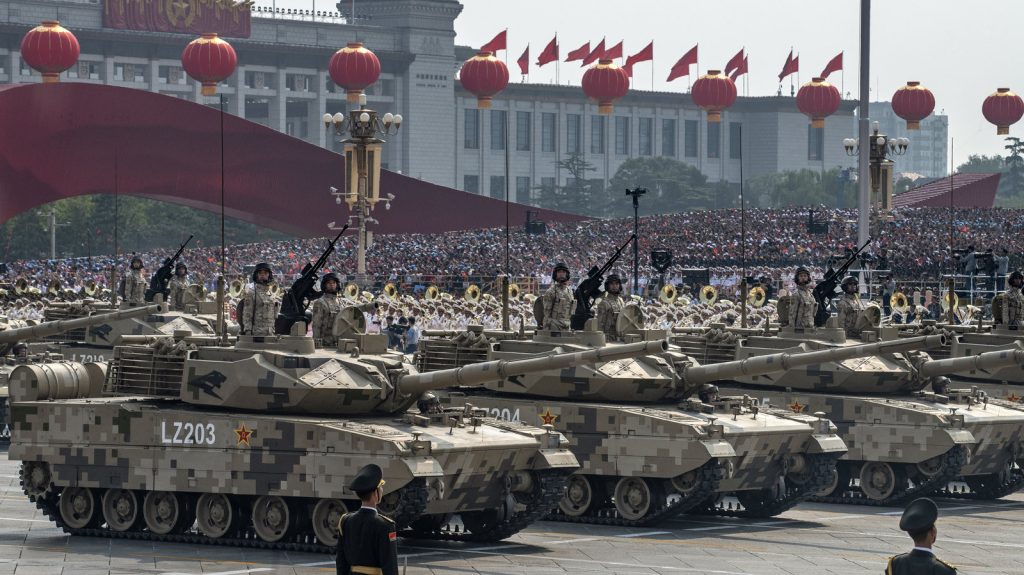
China’s pivotal naval strength has underpinned its blatant incursions into the exclusive economic zones of neighbouring countries, such as the Philippines, contributing to the rapid escalation of tensions throughout the Asia-Pacific region in recent years. With the 2023 Defence Strategic Review articulating that “Beijing’s assertiveness is the greatest threat to our security”, Australia continues to establish a number of comprehensive strategic partnerships with smaller nations in the Asia-Pacific as well as the Association of Southeast Asian Nations (ASEAN), in an attempt to solidify and strengthen its existent alliances in an increasingly hostile region. Australia’s solidarity with the countries opposing China’s maritime claims, predicated upon the 1982 United Nations Convention on the Law of the Sea, represented a marked shift in foreign policy from its previous strategy of passive appeasement.
China’s Economic Leverage Over Australia
Despite these formal ‘partnerships’, Australia has continued to remain relatively quiet about China’s blatant incursions into the exclusive economic zones of neighbouring countries and has merely echoed its support for international law, with Prime Minister Anthony Albanese even refusing to disclose whether he had spoken with Xi after Australian naval divers suffered injuries in a run-in with a Chinese warship in November 2023. This is primarily due to the immense economic leverage that China has held over Australia, accounting for over 32% (AU$219 billion) of total exports and serving as the “top overseas market for agriculture, resources and services”.
Australia has made active efforts to diversify its export market, establishing closer economic ties with nations such as Japan, who received almost 20% of Australia’s exports in February 2023, the highest since 2010, while South Korea rose from 6.5% to 9% and Taiwan rose from 2.8% to over 5% in a similar 12-month period. Although these figures have declined after China repealed its import ban on Australian coal, revealing Australia’s sustained dependence on the Chinese market, trade with smaller Southeast Asian nations have still climbed by over 7% since 2020. Finally, the rise of Chinese aggression in the Asia-Pacific region and its establishment of a permanent military presence in Pacific Island nations such as the Solomon Islands has posed a tangible threat to Australian national security.
In response to a potential crisis in the Asia-Pacific region, Australia’s military spending has risen considerably in recent years, with a new defence budget of AU$55.7 billion in 2024, an increase of 6.3% from the previous year and over 90% from 2014, when it was AU$29.3 billion. Additionally, almost a decade of declining relations with China has forced Australia to establish stronger military partnerships with its western allies, resulting in the formation of the trilateral security alliance AUKUS with the United Kingdom and the United States, which China widely criticised as “severely damaging regional peace”.
Without a doubt, the recent rise of Chinese aggression in the Asia-Pacific region has radically transformed Australia’s foreign policy, security agenda and global economic allegiances.
Read more: The Insight Corner
